PRME— REP o R t 2009



A leading, internationally accredited (EQUIS and AMBA)
» university in the field of economics and business administration, celebrating its 100th anniversary in 2009
A research-based business school with a core faculty of » 100 (78% hold a PhD)
Departments: Accounting, Commercial Law, Economics, » Finance and Statistics, Management and Organisation, and Service and Relationship Marketing
1,900 students enrolled for the BSc and MSc degrees » and 160 students studying for the PhD degree
The share of international students is higher than at any
» other Finnish business university
Full range of degrees from Bachelor to PhD, including 8 » MSc programmes offered in English, and an Executive MBA programme.
Close to 70 partner universities (17 of which have sig - » ned the PRME agreement) in more than 30 countries around the world
Close and intensive links with the business world
» 12000 alumni working in over 40 countries worldwide
» Strategy for Sustainable Development covering Educa -
» tion, Research, Interaction and dialogue with the business community and society, Staff and Students, and internal attitudes within Hanken regarding transparency, co-operation, respect, equality and academic fraud
At Hanken School of Economics we consider the endorsement of the Principles for Responsible Management Education as a natural step that an international business school should take towards developing the education to promote sustainable development. Business education must not become too specialized and too narrowly focused. In the future it will be important that decision makers have a holistic competence, including an understanding of the connection between economic action and broader societal consequences as well as the state of the environment. Critical reflection and reflexivity regarding questions of professional ethics and Corporate Responsibility should thus be central for every student at Hanken. There are different dimensions of Corporate Responsibility and our students need to learn and reflect on how to be responsible in a broad sense of the word.
Curriculum change is part of a holistic process at Hanken. There is the official curriculum and there is the ’hidden’ curriculum of encouraging students to critical thinking. We also look for an appropriate balance between a bottom-up and a topdown approach, which in itself is a challenge. Without strong roots in research, teaching and the student body, implementing PRME will become a bureaucratic exercise. On the other hand, without clear support from the School’s leadership, the implementation of PRME stands in danger of becoming too attached to the efforts of a few individuals. International partnerships and strategic alliances both with other academic institutions as well as corporate and societal actors will play an increasingly important part. We strive to share our experiences from PRME as well as learn from others. In our daily work at Hanken, transparency, cooperation, respect and equality are all emphasized as means to contribute to a responsible environment. In addition, counteracting academic fraud is given top priority at Hanken, as unethical behaviour in studies can lay the value foundations for working life.
As PRME participants, we are faced with challenges: we need to go beyond actions that would be merely accreditation-driven, as they do not lead to long-run effects; and we also need to avoid a too standardized implementation of ethics and Corporate Responsibility issues into the curricula. Our efforts need to be aligned with the mission and vision of Hanken, at the same time as we need to be reflexive and question our own actions in relation to sustainable development. At Hanken we are only at the beginning of this journey, but we are committed to stay the course.
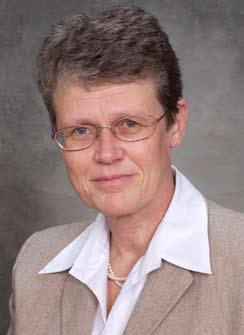
Hanken faces new challenges as increasing internationalization and globalization emphasizes the complex relation between business, the physical environment and social welfare. Sustainable development attaches an important role to the field of economics and business administration. Today, the corporate sector is expected to contribute to development that meets the needs of the current generation, without compromising the possibility of future generations to meet their own needs. This is the definition of sustainable development.
The notion of sustainable development comprises issues on ethics, societal and socio-cultural responsibility, economic development, nature, and a responsibility for future generations. It is a big challenge to balance these issues. As an ultimate goal, sustainable development requires new knowledge and innovative thinking as well as a close examination of current routines and roles of a range of actors in society.
Hanken’s strategy for sustainable development stems from the challenges the School faces with regard to sustainable development from economic, societal and environmental perspectives both within education, research, executive education and administration.
Hanken creates new knowledge in economics and business administration and enhances the level of knowledge in the corporate world and generally in society. Hanken fosters high-level ethical competence and acknowledges its social responsibility.
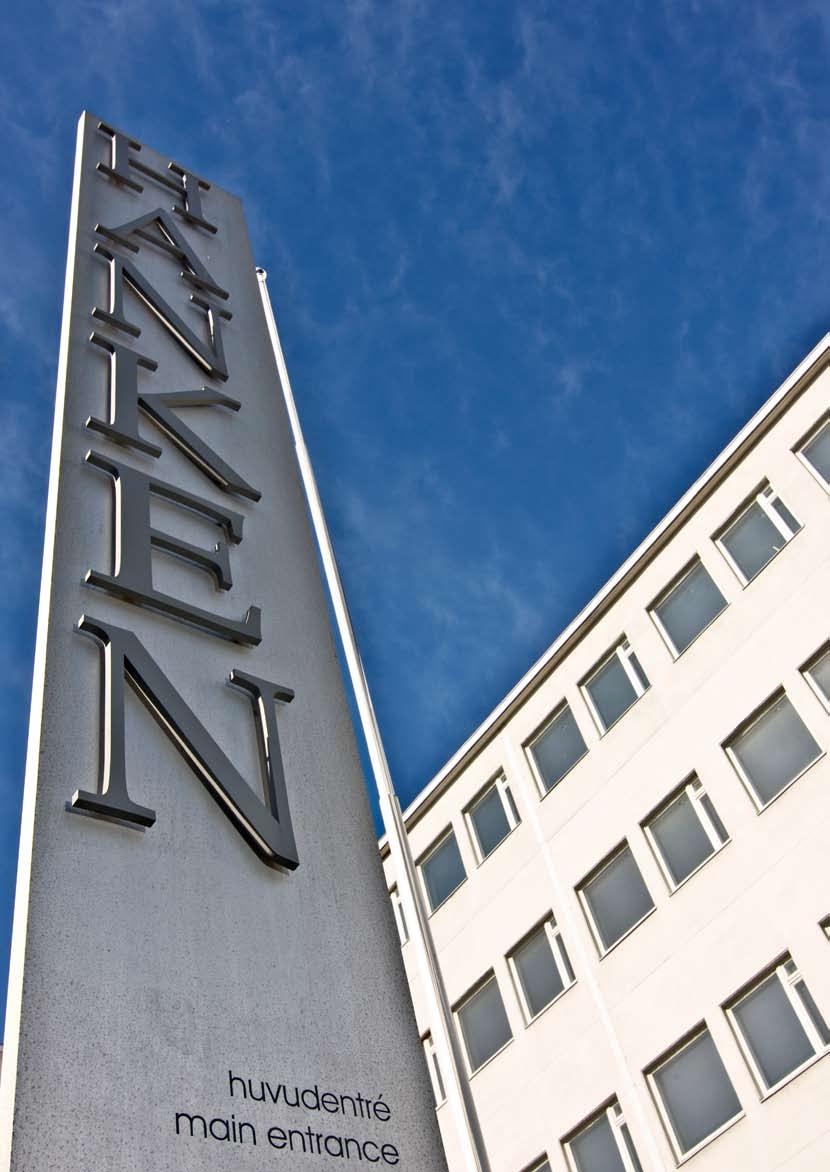
We will develop the capabilities of students to be future generators of sustainable value for business and society at large and to work for an inclusive and sustainable global economy.
We have little illusions about the magnitude of the task of inducing change and reaching the goal of a sustainable economy. Increasingly incorporating issues around ethics and sustainable development into the curriculum is not a matter of simply adding something on - like milk to coffee - but rather something that has to permeate everything we do. The year 2007-2008 saw the start of a structured effort in the launch of Hanken’s Strategy for Sustainable Development, which lays the foundation of our efforts. We realize it will take time, but as a business school we are committed to making it an organizational priority.
Several academic conferences and seminars aimed at Hanken alumni and the public at large have been arranged during 2007-2009. Examples include:
The opening seminar of the HUMLOG institute on
» 12.12.2008. The Humanitarian Logistics and Supply Chain Research Institute (HUMLOG) carries out humanitarian logistics research at Hanken School of Economics and the National Defence University of Finland. The research institute is based at Hanken.
The Nordic Logistics Research Network conference ar-
» ranged at Hanken on 05 –06.06.2008 included workshops on Carbon Efficient Supply Chain Management, Sustainable and closed-loop supply chains, Retail logistics – keeping shops stocked and sustainable, Sustainable transportation. In addition many of the papers presented at the conference were CR related.
Hanken alumni seminar: performance measurement and
» aid effectiveness in humanitarian logistics on 14.12.2007. Keynote speaker Pekka Haavisto, former EU Special Representative for Sudan.
Seminar: From Wall Street to Kabul – Weaving hope and
» Business in Afghanistan on 28.11.2007. Presentations by Ms. Connie Duckworth, founder and President of Arzu Inc and Ms. Tooba Mayel, Afghanistan Country Director of Arzu Inc.
Seminar on career, models and leadership on 20.11.2007.
» Dealing with issues such as women & career, leadership and social identity.
Seminar on lean accounting, JIT and automation on » 29.10.2007.
Hanken has offered financial support for Net Impact Hanken members to take part in the annual Net Impact conference in North America both in 2007 and 2008. Net Impact Hanken, a subchapter of the international non-profit MBA organization Net Impact (www.netimpact.org), is a student organization that works towards engaging future business leaders to improving the world.
In 2007, the conference was hosted by Vanderbilt, Owen » Graduate School of Management in Nashville with the topic “Building a Sustainable Future: what will you do next?” Hanken, with its 6 participants, was the only Nordic representative and the second of only two European Schools.
In 2008, the conference was hosted by Wharton School
» of the University of Pennsylvania in Philadelphia. The topic was “The Sustainable Advantage – Creating Social and Environmental Value”. Hanken had 7 participants at the conference and was once again one of the few international schools present.
» dimension.
Development of internships with a socially responsible
Creation of team projects related to Corporate Responsi-
» bility (CR) in conjunction with local, regional or global organizations.
Further support of the student club Net Impact Hanken.
» A student organized Nordic CR conference is planned for
» May 2009.
P
We will develop the capabilities of students to be future generators of sustainable value for business and society at large and to work for an inclusive and sustainable global economy.
“From my point of view, Hanken’s ambition in this respect is very high, but it’s a continuous process. I believe sustainable development is fundamental to economics as a subject.”
- P ROFESSOR I n E CO n OMICS , H ELSI nk I CAMPUS
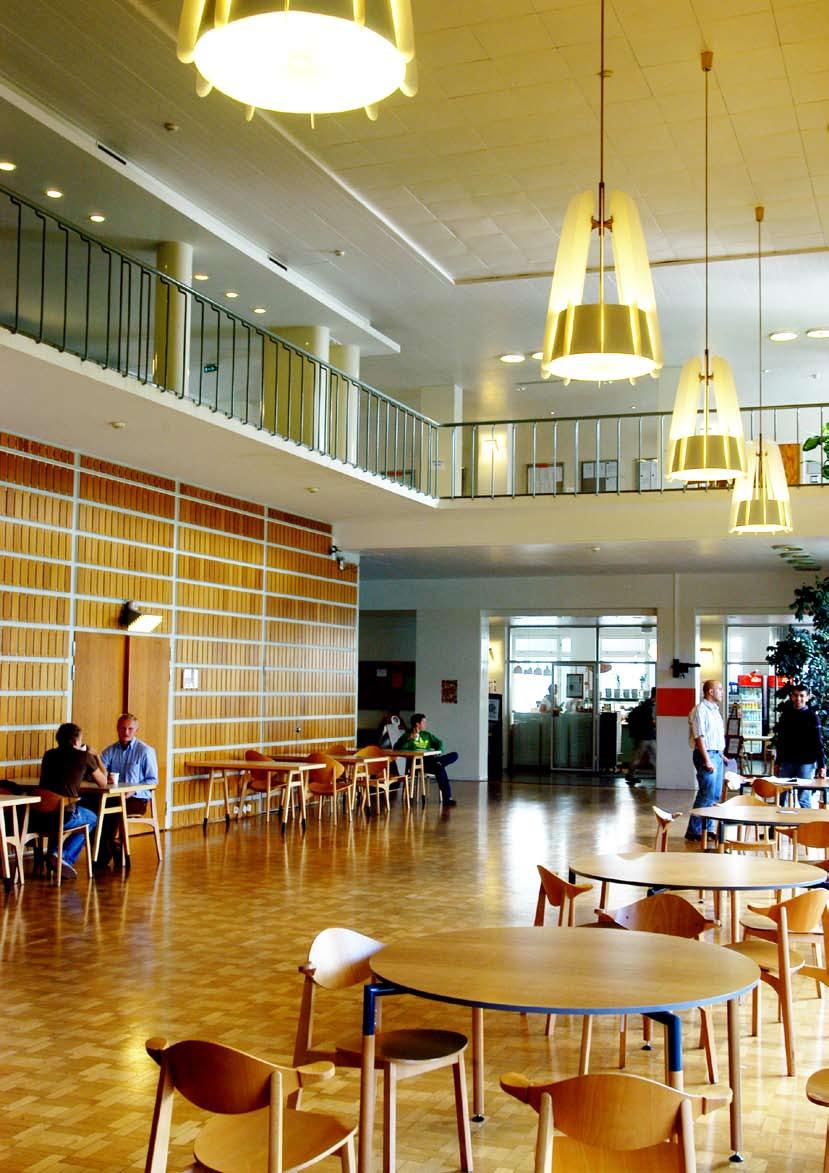
“Corporate social responsibility and CSR reporting are currently so strongly emphasized in the world we live in that we have to adjust our education to that. That’s also why we have incorporated them on quite a large scale.”
P
R inci P l E 1. Pu RP o SE - ROFESSOR I n A CCOU n TI ng, H ELSI nk I CAMPUSWe will incorporate into our academic activities and curricula the values of global social responsibility as portrayed in international initiatives such as the United Nations Global Compact.
At Hanken economic, social, environmental and ethical aspects are integrated into the education at Bachelor’s, Master’s and PhD levels, in Executive Education and at the Open University. We encourage a bottom-up approach, where students, teaching and research personnel as well as support staff take initiative and actively take part in establishing values of social responsibility.
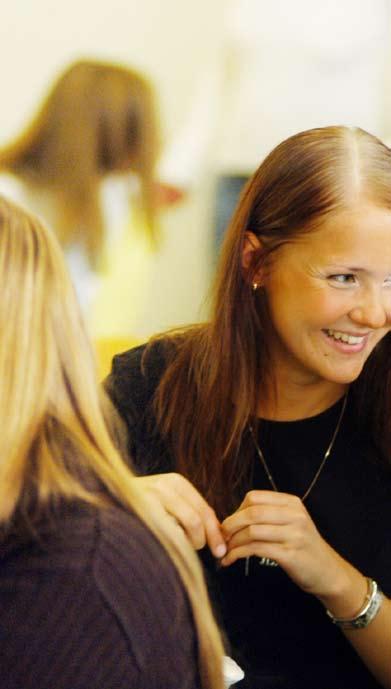
On the BSc and MSc level Hanken offers a range of cour- » ses that specifically focus on issues concerning corporate responsibility, ethics and sustainable development. Examples include courses such as Accounting, Governance and Sustainability (given within the department of Accounting), Corporate Sustainability (given within the subject Supply Chain Management and Corporate Geography), Gender, Management and Organisation (given within the department of Management and Organisation), Intellectual Property and Competition Law given within the department of Commercial Law), and Politics and Industrial Relations (given within the subject Politics and Business).
In order to ensure that all students on the BSc level have an » understanding and some knowledge about issues concerning corporate responsibility and sustainability, in 2008 a module on corporate responsibility has been given within the course Introduction to Supply Chain Management and Corporate Geography, which is mandatory for all students on the BSc level. The course also comprises a paper to be written in groups on CR issues within a certain industry.
The course Corporate Sustainability, given in English, » has seen co-operation with the student club Net Impact Hanken, both in terms of what topics are covered as well as coordination of events that are both integrated into the course and open to other students, such as panel discussions and film events. The co-operation also enables Net
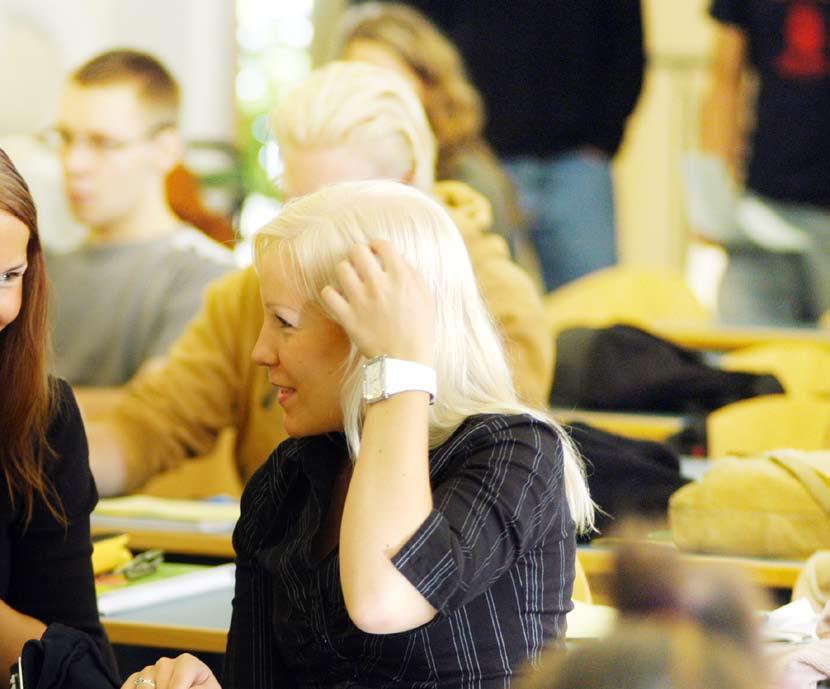
Impact Hanken to reach exchange students and encourage them to become involved in Net Impact and/or start Net Impact chapters in their own schools.
Among the MSc programmes offered in English at Han-
» ken, especially the Master’s Degree Programme in Intellectual Property Law and the Programme in Corporate Governance can be seen to emphasise responsible leadership.
Doctoral courses in Relief Supply Chain Management and
» Geographic Information Systems for Humanitarian Logistics (offered within the subject Supply Chain Management and Corporate Geography). PhD course IP-law in context – Methodological and theoretical foundations (given within the subject Commercial Law).
» ethics.
The Open University has offered a course in management
An interdisciplinary study module in Corporate Responsi-
» bility offered in English has been introduced. The study module is 26 sp and can be taken as a minor subject in the bachelor’s degree. In 2008-2009 the courses included in the CR study module were:
» The Corporation and Its Employees
Corporate Sustainability
» Business, Government and Society
»
» Gender, Management and Organisation
Subject specific courses taken within responsibility and
» sustainability issues at other universities are accepted and actively encouraged.

In many courses which do not have a direct CR-related to-
» pic, themes such as ethics and sustainability are included.
An indicator of success is the rise in student interest for
» CR, which can be seen in the number of bachelor’s and master’s theses written on the topic. CR related theses have been written within all different departments. Some examples of master’s theses within different departments
written during 2007-2008 are listed below (NB. Titles of theses written in Swedish have been freely translated).
» Case Metso corporation
Defining materiality in corporate social responsibility:
co
The organisation of legal compliance in the field of envi- » ronmental law
»
Gender discriminating advertising
Econo
Growth by resource conservation: an empirical investiga- » tion into the role of environmentally sustainable economic management as a determinant of long-run economic growth
Corporate social responsibility and company valuation: an » empirical study of the energy sector in Russia
Ma R k E tin G
Saving the world through Cause Related Marketing »
Ethical Relationship marketing »
Su PP ly c hain Mana GEME nt and c o RP o R at E G E o GR a P hy Environmental packaging within the cosmetic industry »
Minimizing transport emissions: a nature resource ba- » sed perspective: case Oy Plastex Ab, Oy Toppi Ab and OY Orthex Ab
P R inci P l E 2. Valu ES
We will incorporate into our academic activities and curricula the values of global social responsibility as portrayed in international initiatives such as the United nations global Compact.
“Hanken plays an important role in society when it comes to drawing students’ attention to basic ethical values. We transmit what kind of behaviour is ethically acceptable in society and thus we must be very careful and conscientious about everything we do.”
The use of CSR ratings in investment decisions
» The environmental certificate EMAS and company profi- » tability – an analysis of causality
Corporate responsibility in a British manufacturing com- » pany: implications for corporate strategy
» codes of conduct
Reading between the lines: a deconstruction of corporate
- P ROFESSOR I n En TREPRE n EURSHIP, M A n A g EME n T A n D O R g A n ISATIO n, vASA CAMPUS
“At the same time within our culture it is perceived as unmannerly, rude even, to tell people how they should behave [ethically]. As a university teacher it can be uncomfortable to take the role of telling someone what is right and what is wrong, it can be rather alien for our way of working”
- P ROFESSOR I n A CCOU n TI ng, H ELSI nk I CAMPUS
Networking at the top: networking amongst women and
» the role of gender in top management and corporate boards in Finland
“Certainly I’m not very satisfied with limiting the whole Corporate Responsibility debate around the notion of things being voluntary because I don’t think that’s enough.”
-A SSISTA n T P ROFESSOR , P OLITICS A n D B USI n ESS , H ELSI nk I C AMPUS
The effect of the Kyoto-protocol on the Finnish pulp and » paper industry
The sustainable development of tourist destinations: a » case study of alpine ski destinations in Sweden
f utu RE PERSPE cti VES
In 2009 interviews with all heads of departments and se- » lected course instructors will be carried out to map views and perspectives on CR and ethical management education, and what the future plans are in terms of further incorporation in different subjects.
» be developed and supported.
New forms of collaboration between departments are to
corporation of the values of sustainable development and social responsibility into the curriculum.
Hanken financially aids teaching and research personnel
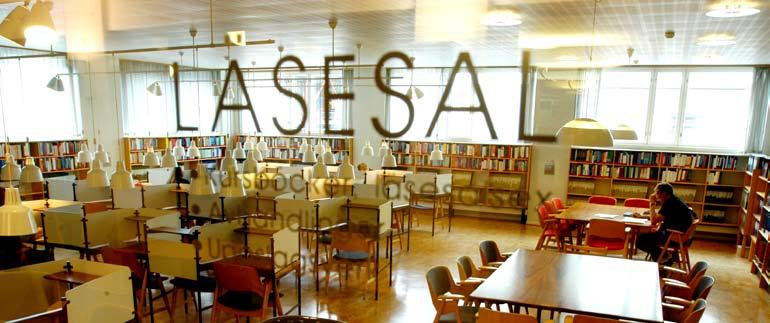
» who wish to take part in seminars on how to incorporate ecological, social and cultural elements of sustainable development into their research, teaching and mentoring.
» dule on Corporate Responsibility.
Further course electives will be included in the study mo-
A new in-depth course on Corporate Responsibility focu-
» sing on standards such as GRI and ISO will be offered in 2008-2009. The course is organised in cooperation with the environmental consulting company Eltekon.
Mapping of courses in CR at Hanken’s partner universi- » ties.
The strengthening of all students’ knowledge about ethics,
» including ethics in leadership and research ethics through further emphasis in and development of the curriculum.
Further co-operation with student organizations such as
» Net Impact Hanken in order to further promote the in-
We will create educational frameworks, materials, processes and environments that enable effective learning experiences for responsible leadership.
We encourage critical thinking towards the mainstream notion of corporate responsibility as mainly based on voluntariness. We do not see that corporate responsibility should be approached in a dogmatic way, but used as an opportunity to discuss environmental and social issues – and possibly reshape the very notion of corporate responsibility through research and practice.
Multiple teaching/learning methods are applied (lectures, » guest lectures, seminars, Problem-Based Learning approach, Role-Playing Simulation, individual papers, case studies, team work, project courses, excursions, debates, etc.).
such as Global Reporting Initiative’s “Matchmaker Program” - companies that have prepared sustainability reports are paired with students who deliver feedback on their GRI reports as part of their course work.
Researching the possibility of creating an interdisciplinary » pool of experts to supervise and support students writing their thesis on a topic with reference to sustainability.
Involvement in / organisation of events (e.g. case compe- » titions) / conferences dealing with the question of teaching / learning methods in order to enhance responsibility, encouraging innovative ideas.
The survey on ethics and corporate responsibility will be » followed up by a new one in 2009, this one will cover faculty.
CR film screenings with debates / panel discussions.
» Guest lectures from people representing NGOs / watch- » dogs / businesses (e.g. Amnesty International, FinnWatch, etc.).
» etc.) at master-level courses.
Company visits with CR-related topics (Fortum, Deloitte,
In December 2007 Hanken’s Board made the decision to
» introduce a semester abroad in the curriculum for all students in the Integrated BSc and MSc programme. This is a step to ensure that students gain experience and crosscultural awareness of different business practices.
We will create educational frameworks, materials, processes and environments that enable effective learning experiences for responsible leadership.
”We have a zero tolerance for cheating. [...] Unethical behaviour can easily become a habit especially if cheating is perceived as normalized behaviour. Therefore it is crucial that we are very strict regarding these issues.”
A longitudinal survey on ethics and corporate responsibi-
» lity among Hanken students has been carried out by students within the subject Supply Chain Management and Corporate Geography.
- vICE -R ECTOR , H ELSI nk I C AMPUS
Strict rules and penalties for academic fraud, plagiarism
» and missed deadlines has been revised and implemented in order to promote responsible behaviour among students.
»
Engagement of students in real world projects of change
“ I’ve learned a lot about the practice of corporate responsibility through the exercise of lobbying with stakeholders during the course. It has demonstrated how hard it is to think about environmental sustainability when you should protect the company interest.”
- S TUDE n T , H ELSI nk I C AMPUS
We will engage in conceptual and empirical research that advances our understanding about the role, dynamics, and impact of corporations in the creation of sustainable social, environmental and economic value.
Research is a central means for reaching the goal of sustainable development at Hanken. Ethically advanced research brings out and disseminates new knowledge about the roles and impact that economic actors have in creating sustainable development. Moreover, Hanken sees research as crucial in describing what sustainable development is.
Hanken’s research is internationally advanced, empiri-
» cal and conceptual. It creates new knowledge about the role, the dynamics and the impact markets and economic actors have on sustainable economic, social and environmental development.
Hanken encourages and supports interdisciplinary re-
» search in order to create new knowledge and courses of action aimed at sustainable economic, social and environmental development.
Hanken effectively disseminates research results on sus-
» tainable development to societal stakeholders at both the national and international levels. Research results concerning sustainable development are published in both national and international peer reviewed journals and popular science magazines as well as in the mass media. Please refer to the list below for examples of publications regarding social responsibility.
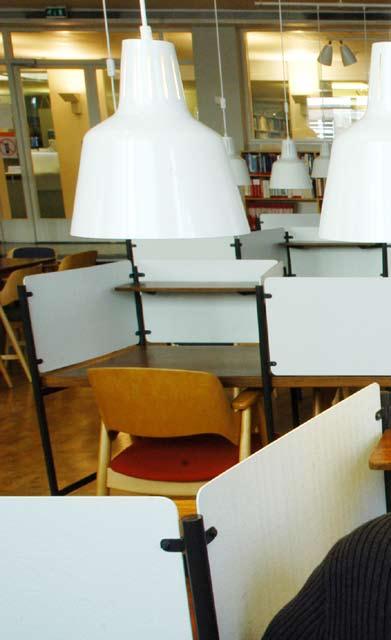

Tienari, J., Söderberg, A-M., Holgersson, C. & Vaara, E.
» (2005): Narrating gender and national identity: Nordic executives excusing for inequality in a cross-border merger context. Gender, Work & Organization, 12(3): 217-241.
Ma R k E tin G
Grönroos, C. (2006): On defining marketing: finding a » new roadmap for marketing. Marketing theory, 6(4): 395417.
Politic S and Bu S in ESS / Su PP ly c hain Mana GEME nt and c o RP o R at E G E o GR a P hy
Fougère, M. & Solitander, N. (2009) ‘Sustainable Deve- » lopment in the Age of Natural Capitalism’. In Banerjee, S.B., Chio, V.C.M. & Mir R. (Eds.) Organizations, Markets and Imperial Formations – Towards an Anthropology of Globalization. Cheltenham, UK: Edward Elgar
Fougère, M. & Solitander, N. (forthcoming, 2009): Against » Corporate Responsibility: Critical reflections on thinking, practice, content and consequences. Corporate Social Responsibility and Environmental Management, 16(4).
Su PP ly c hain Mana GEME nt and c o RP o R at E G E o GR a P hy
Kovács, G. (2008): Corporate environmental responsibi- » lity in the supply chain. Journal of Cleaner Production, 16(15): 1571-1578.
R ESE a R ch PR oj E ct S
Mana GEME nt and o RG aniation
Jyrkinen M.: Age, Gender and Diversity: Women Mana- » gers and Organisational Policies, 3-year Academy of Finland postdoctoral project, 2008 - 2010
Salin, D.: Organisational measures against bullying: » attitudes, intervention and prevention. 01.08.2005 –31.07.2008
Ekonen, M., Hearn, J., Hiillos, M., Husu, L., Jyrkinen, M., » Lämsä, A-M., Niemistö, C., Omair, K., Pesonen, S., Vanhala, S. & Välimäki, S.: NASTA – Women’s leadership: A research and development project. Joint project between three Finnish universities: Hanken School of Economics, Jyväskylä University and Helsinki School of Economics.
Ma R k E tin G / Su PP ly c hain Mana GEME nt and c o RP o R at E G E o GR a P hy
Research project: Hospital Service Quality: A cross-na- » tional/cultural study in Finland, the People’s Republic of China, Nigeria, Denmark and Austria. Experts: Antai, I., Polsa, P. & Spens, K.

f utu RE PERSPE cti VES
Interdisciplinary forums for and seminars in sustainable » development are to be created
Creation of a CR research center »
Kovács, G. & Spens, K. (2008): Humanitarian Logistics
» Revisited. In Arlbjörn, J.S., Halldórsson, Á., Jahre, M. & Spens, K. (Eds.): Northern Lights in Logistics and Supply Chain Management. Copenhagen: CBS Press.
We will interact with managers of business corporations to extend our knowledge of their challenges in meeting social and environmental responsibilities and to explore jointly effective approaches to meeting these challenges.
We encourage dialogue and debate within the academic and business communities, among decision makers, consumers, the media, citizens’ organisations and other stakeholder groups on issues concerning responsible management and sustainable development are actively supported.
a chi EVEME nt S
» executive education.
Corporate ethics and codes of conduct are brought up in
Through developed incentives, researchers are encoura- » ged to be active within various national forums on sustainable development.
Hanken Alumni. Further cooperation with Audencia Nantes School of Ma- » nagement (exploring the possibilities to develop joint programmes, joint conferences, faculty exchange, research cooperation, etc.).
»
Finnish Business & Society ry (FiBS)-membership
FiBS is an enterprise network that was established » in 2002. Its mission is to promote financially, socially and ecologically sustainable business in Finland. (source: http://www.fibsry.fi/)..
Through the FiBS network Hanken strengthens its » contacts to the business community and other university members..
Hanken also plans to cooperate closely with FiBS » when organizing events which involve speakers or participants from the business world..
Cooperation with Audencia Nantes School of Manage-
» ment and its Centre Pour la Responsabilité Globale has been initiated concerning issues around CR.
Professionals and managers with a background in CR are » actively used in teaching and invited as guest lecturers.
f
Interaction and new forms of collaboration with the bu-
» siness community are to be developed in order to gain an understanding of the challenges that sustainable development poses and in order to create effective solutions to them, eg. in the form of CR project courses in conjunction with companies.
UniPID (Finnish University Partnership for International » Development) membership. Research and education co-operation. » Exchange of knowledge between Finnish universities » and universities in developing and transition countries.
Students at member universities can participate in » virtual courses about sustainable development at no cost.
Link to national, European and global sustainable » development networks. (source: https://www.jyu.fi/ hallinto/unipid/en)
Breakfast seminar series on CR will start in 2009. It is
» targeted at management and industry representatives and will be offered in cooperation with Hanken’s executive education (Hanken & IFL: http://www.hankenifl.fi) and

We will interact with managers of business corporations to extend our knowledge of their challenges in meeting social and environmental responsibilities and to explore jointly effective approaches to meeting these challenges.
“When teaching about professional ethics it’s sometimes too easy to have an opinion, many people have an opinion about everything, but any course that deals with these issues really benefit from bringing in people from working life and who deal with these issues professionally on a daily basis”
We will facilitate and support dialog and debate among educators, business, government, consumers, media, civil society organisations and other interested groups and stakeholders on critical issues related to global social responsibility and sustainability.
Founding of the HUMLOG institute in cooperation with » the National Defence University Finland in December 2008. The institute incorporates CHLOG, the Centre for Humanitarian Logistics and Supply Chain Research at Hanken and serves as a platform and physical place for researchers in the field of humanitarian logistics to exchange ideas.
A seminar on Integrated internationalization – insti- » tutional challenges was arranged at Hanken on 0304.04.2008.
Hanken is part of the Baltic University Programme (BUP), » which is a regional university network concentrating on different aspects of sustainable development in the Baltic region.
Niklas Bruun, Professor in Commercial Law at Hanken, » has been appointed member of the UN Committee monitoring the Convention on the Elimination of All Forms of Discrimination against Women (CEDAW).
Guest lectures from people representing NGOs / watch- » dogs / businesses, company visits, film screenings, etc.
Rector Marianne Stenius attended the Global Forum for » Responsible Management Education in New York 4–5 December 2008.
Course material, educational programmes and web-based » services that reach a larger group of stakeholders are to be developed.
» EABIS membership.
Public sustainability policy in several languages.
»
The European Academy of Business in Society (EABIS) » is a unique alliance of companies, business schools and academic institutions that is, with the support of the European Commission, committed to integrating business in society issues into the heart of business theory and practice in Europe. (source: www.eabis.org)
P R inci P l E 6. d ialo G
We will facilitate and support dialog and debate among educators, business, government, consumers, media, civil society organizations and other interested groups and stakeholders on critical issues related to global social responsibility and sustainability.
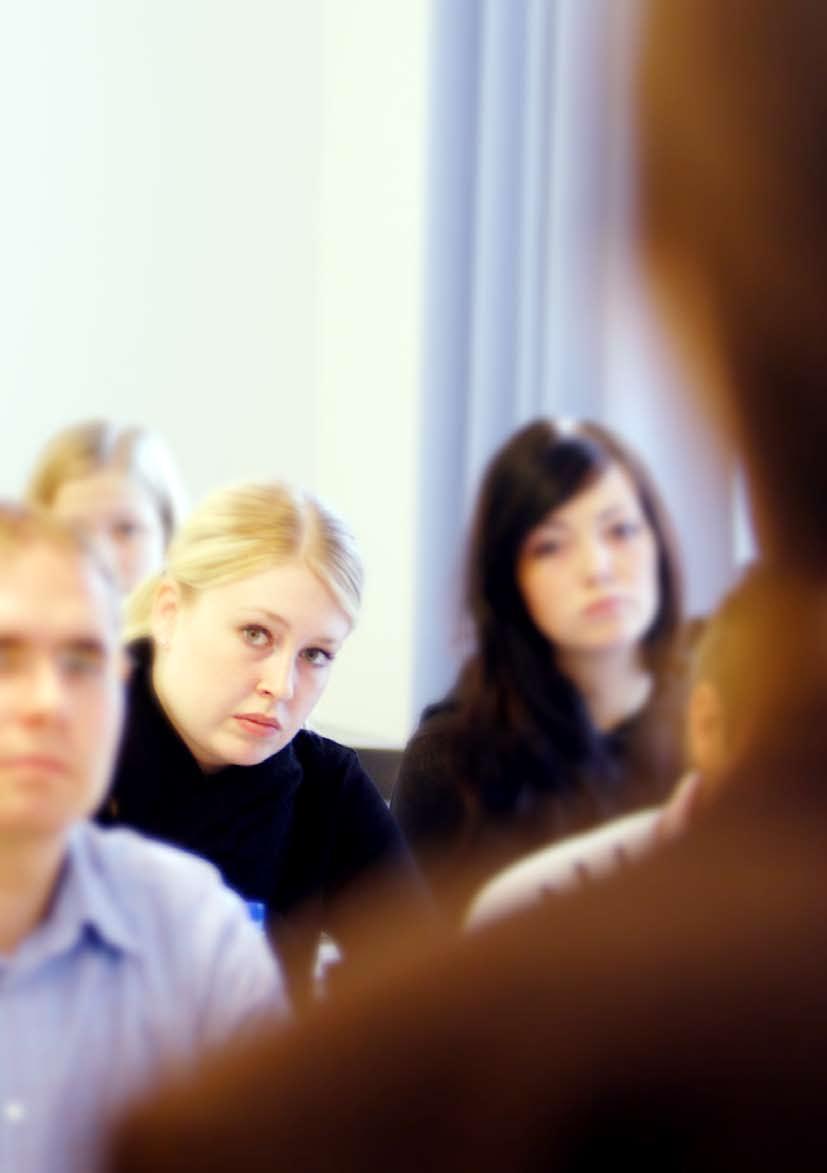
“ The concepts of Corporate Responsibility and ethics are useful because it is possible then to have them as an important question of debate in society, so in that sense I think it’s important that these concepts become more visible in society and in business schools.”
-A SSISTA n T P ROFESSOR , P OLITICS A n D B USI n ESS , H ELSI nk I C AMPUS
“The great thing about these issues is that they are so complex; there are so many perspectives and views. So when you do research it’s a great basis for cross-disciplinary work”.
-D OCTORAL S TUDE n T , H ELSI nk I C AMPUS
We understand that our own organizational practices serve as example of the values and attitudes we convey to our students.
The internal attitude towards sustainable development and ethical values is the corner stone of Hanken’s strategy for sustainability. Hanken’s internal activities should be characterised by routines and practices that are based on responsibility, openness, co-operation, respect and equality. Hanken is a fair, secure and effective organisation. The principle of security implies that the staff should be able to work in an environment that does not endanger physical or mental health, that the work environment is comfortable and that everyone strives continuously to prevent and handle workplace-related conflicts. Hanken also strives continuously to reduce its impact on the environment.
The awareness among staff concerning sustainable deve- » lopment and societal responsibility is continuously improved.
The signing and adherence to the Principles for Re- » sponsible Management Education (PRME).
Hanken’s environmental guide (2006) with a focus on re- » ducing waste, saving energy and recycling.
Internal sustainability strategy based on the following do- » cuments:
Hanken Strategy 2015 » Action programme “Agenda 21 for the Baltic Sea » Region”, http://www.baltic21.org/ (revised by the Ministers of Education of the Baltic Sea region 2425 January 2002)
The ”Sustainable development in education: Im- » plementation of the Baltic 21E programme and Finnish strategy for the Decade of Education for Sustainable Development (2005–2014)” report from the Ministry of Education (http://www.minedu.fi/OPM/Julkaisut/2006/kestavan_kehityksen_edistaminen_koulutuksessa_baltic_21e_ohjel?lang=sv&extra_locale=en)
“Global Compact” for academic institutions develo- » ped by the United Nations (http://www.unglobalcompact.org/)
“Principles for Responsible Management Educa- » tion” (PRME) (http://www.unprme.org )
Implementation of the WWF Finland Green Office certifi- » cate. (http://www.wwf.fi/yritykset/green_office/)
Investment in new technology with sustainable develop- » ment as the starting point.
Investigation of the possibility of offering a staff ticket for » the use of public transport.
New forms of co-operation between academic staff and the » Student Union are to be developed in order to stimulate dialogue and increase interest in sustainability issues.
ISO 14001 standard »
Best CR thesis award »
Environmental guide to be translated into several langu- » ages and disseminated publicly.
a dd E ndu M PR inci P l E
We understand that our own organizational practices serve as example of the values and attitudes we convey to our students.
”..We can always set a good example by showing what correct behaviour entails. you have to be a good role model, which we strive to be in every teaching situation.”
 - P ROFESSOR I n M AR k ETI ng, vASA C AMPUS
- P ROFESSOR I n M AR k ETI ng, vASA C AMPUS